- Home
- Dornford Yates
Berry Scene Page 2
Berry Scene Read online
Page 2
My sister regarded her wristwatch.
“I should like,” she said, “to leave here at half-past ten. I want to give an order at Wilson’s before we drive to the Close.”
“Make it eleven,” said I. “We’re bound to be there in less than an hour and a half.”
“Half-past ten,” said Daphne. “I love having time to spare.”
Berry was right about the greys. Before eleven o’clock I had split my left-hand glove. I was glad when we came to the foot of Hunchback Hill. Here was a long ascent, and, as we approached its head, I saw a brewer’s dray at rest by the side of the road. The driver was breathing his cattle after the climb.
As I turned my head, to give the fellow good day—
“It’s Curly,” shrieked Daphne. “Stop, Boy, stop. Curly, Curly, how good to see you again!”
I pulled the greys in to the hedgerow, and William, sitting behind us, slipped down and ran to their heads. I gave the reins to my sister and left my seat. As I gained the road, the mighty drayman came forward, cap in hand.
“It’s my day out, Master Boy.”
“And ours, Curly.” I shook his enormous fist. “Come and – meet Mrs Pleydell.”
The fine old waggoner stepped to the side of the phaeton, touched his forelock and made my sister a bow.
“Your servant, ma’am.”
“How dare you, Curly? Shake hands and call me ‘Miss Daphne’, just as you always have. How many times have you put me up on Yorick? But what does this mean? You’ve not come back to the road?”
“For two months only, Miss Daphne. Two of our drivers are sick, an’ I was glad of a chance to help the firm. They’ve been very good to me; and in summertime, you know, I’m as good as I was.”
For five or six minutes we spoke of bygone days, for Curly Jordan was one of our childhood’s friends. Then the three of us went to make much of his ‘unicorn’. Three fine shire horses they were, with bells on their collars and plaited manes and tails. The leader was outstanding – a benevolent giant that blew upon Daphne’s face and then stood on his dignity.
“They do you great credit, Curly.”
“One does one’s best, Miss Daphne. An’ now that I’m back, you know, I feel I want to go on.”
“I’m sure you do. So should I. But I hope you won’t. The winter weather, Curly, would bring you down.”
“Maybe you’re right, Miss Daphne. I’m rising seventy-four.”
Then we all strolled back to the phaeton, and Curly stood beside it, while I put Daphne up and then climbed back to my seat.
He was smiling gravely as he stood there, still a magnificent figure, his humble apron of sackcloth about his waist. But as my eyes met his, I read their long farewell, and I knew I was looking my last upon a great-hearted man. And Curly knew it, too.
My sister leaned forward.
“Come round to my side, Curly.”
When the waggoner did her bidding, she put out her hand for his.
“D’you remember you used to say that I was the light of your eyes?”
Curly bent his grey head.
“Ay, Miss Daphne,” he said. “I used to make that bold.”
“I’m so proud to remember it, Curly. I always shall be proud that such a famous waggoner said such a thing of me.”
She stooped and kissed his rough cheek.
As Curly stood back, glowing, I nodded my head to William, whose eyes were upon my face.
He sprang aside and I touched the greys with the whip…
Two miles had bowled by before Daphne lifted her voice.
Then—
“We’re going down, Boy,” she said. “We don’t breed men like Curly Jordan today.”
“I’m afraid you’re right,” said I. “Now, don’t be silly, Law – that’s only a five-barred gate.”
The way from White Ladies to Brooch is still a lovely way, but now there is much more traffic, and pretty roads that were crooked have been made straight. And the tarmac has swallowed verges, amid time-honoured trees have been felled. But on that midsummer morning the way was as it had been before my father was born.
Three miles I well remember as being the fairest of all. Here Nature and Husbandry seemed to go hand in hand: wild rose and honeysuckle tricked out the wayside hedge, elms guarded lovers’ stiles, and oak and ash and chestnut held up a ragged canopy for passers-by. Now and again an aged, five-barred gate hung like a window-sill, to offer such a landscape as Thomson sang and Constable loved to paint, and once the road curled down to a little ford, where the stream ran clear upon gravel, murmuring out of a thicket and into a meadow’s arms, and turning sweetness to fragrance down all its length.
There I pulled up the greys that morning, for the day was hot and the water was good for their legs, and the spot was one which from childhood my sister and I had loved.
So we rested for five or six minutes…
As we were leaving the water, a gig came slowly towards us, drawn by a strawberry roan.
“Mary Anne,” said Daphne.
Mary Anne was the roan.
I checked the greys, and the farmer driving pulled up and took off his hat.
“Good morning, Mr Ightham.”
“The sweet of the morning to you, ma’am.” His eye ran over the greys. “You’ve a handful there, Mas’r Boy.”
I laughed.
“My arms’ll be stiff tomorrow. Mrs Ightham quite well?”
“In wonderful trim, sir, thank you.”
“And Bridget?” said my sister. “I thought she was coming to me.”
“So she hopes, ma’am. She wrote her letter last night. But don’t you spoil her, Miss Daphne. Her mother came out of White Ladies, and Bridget’s going to you to learn how to make a good wife.”
“I’ll bear that in mind, Mr Ightham. Her mother’s name is still a household word.”
“Like mistress, like maid, Miss Daphne. An’ Mas’r Berry? I hope he’s keeping well.”
“In splendid form, Mr Ightham. You know he’s a magistrate now?”
“That’s as it should be, Miss Daphne. I reckon he’ll put them motorcars where they belong.”
“He’ll, er, do his best, Mr Ightham. Give Mrs Ightham my love.”
“Thank you kindly, ma’am.”
We bade him goodbye and drove on.
As the phaeton swung up the hill—
“‘Them motorcars,’” breathed my sister. “We’re going to lose half our friends.”
“For the time being only,” said I. “I quite agree with Jonah – that very soon our neighbours will follow suit.”
I saw a car in the distance, as we were entering Brooch. Before Law and Order had seen it, I turned to the left. It was no good asking for trouble. But when I had fetched a compass, to enter the square of St Giles, there was another car fuming some fifteen paces away.
Happily the square was not crowded, for the greys, with one consent, proposed to mount the pavement, if not to enter some shop.
I spoke over my shoulder to William.
“Ask the chauffeur to stop his engine. Be very polite.”
With the tail of my eye I saw my orders obeyed, but the chauffeur only laughed and let in his clutch.
There was only one thing to be done.
As the car moved forward towards us, I stood up, lashed Law and Order and let them go. Oblivious of all but the pain, the greys leaped forward, flung past the moving car and down the length of the square.
To this day I do not know how we entered Bellman Lane, but I managed to pull them up before we had reached its end.
William came running, white-faced.
“All’s well,” I said, “but stand to their heads a minute.”
When he was there, I gave the reins to Daphne and went to their heads myself. I did my best to repair the wrong I had done them, soothing and making much of the handsome pair. Then I turned to the groom, who clearly had news to tell.
“Yes, William. What do you know?”
“It was just beginning,
sir. Joe Chinnock had got the chauffeur, and Mr Bertram was there.”
“Then we’ll hear all about it later. They’re all right now, I think; so we’ll get along.”
But I felt better already. Joe Chinnock came out of our village and plied a blacksmith’s trade.
Half an hour had gone by, and we were in the Deanery garden, taking a glass of sherry before we sat down to lunch.
“Act Two,” said Berry, “was most enjoyable. Let me say at once that I shouldn’t have enjoyed it so much, if I had had the faintest idea that you and my only wife had been on in Act One. But the phaeton was out of sight when I drove into the square.
“The first thing I saw was Joe Chinnock holding a wallah up by the scruff of his neck. Then he swung him into the horse-trough and let him lie.
“Now there was no constable present, and I felt that, if worse was coming, it might be my bounden duty to interfere. Not physically, of course. A dirty look, or something – you know what I mean.
“In some uneasiness, therefore, I trotted up to the scene.
“By the time I was there, the car, deprived of its helmsman, had ravaged a barrow of strawberries and butted the nearest lamp-post, which it had snapped in two. The top, complete with lantern, had fallen into the front or driver’s seat; but the bottom had held the car, whose engine had stopped.
“You never saw such a mess. Cast iron sticking out of the wind-screen, glass all over the cushions, and the whole of the car’s off forehand plastered with the succulent mush to which the slightest pressure reduces our scarlet fruit.
“The chauffeur had emerged from the horse-trough and was standing, streaming with water and trying in vain to unbutton his uniform: and a man, not unlike a gorilla, had erupted from the back of the car and, using most regrettable language, was declining the hawker’s invitation to view what had once been a barrow, but now bore no resemblance to that commodity.
“I had just told George to take Rainbow, when Constable Rowe appeared. This, of course, absolved me; so, as I had a good seat, I sat still where I was.
“Now Rowe never saw the chauffeur. But he saw the gorilla and the hawker, engaged in mutual abuse: he saw the strawberries and the lamp-post, clearly the prey of the car; and he jumped to the natural conclusion that the gorilla had been driving the car and had done first the barrow and then the lamp-post in.
“So the stage was set for confusion.
“After the opening chorus, which was taken very fast by the gorilla and the hawker and was consequently not so much incoherent as distracting, Rowe cursed the two into silence and took out his book. Then he turned to the gorilla.
“‘Well, if you wasn’t drivin’, who was?’
“‘Nobody was,’ cries Gorilla. ‘I tell you–’
“‘Then that’s ’ow it ’appened,’ says Rowe, beginning to write and reading his entry aloud. ‘Car left unattended.’
“‘It wasn’t unattended,’ yells Gorilla. ‘My chauffeur–’
“‘If no one was drivin’–’
“‘I was drivin’,’ says the chauffeur, who had come up unobserved.
“‘No, you weren’t,’ screams Gorilla. ‘Nobody was.’
“‘Well, I should ’ave been,’ says the chauffeur, ‘if–’
“‘Ah,’ says Rowe, staring upon him. ‘You should ’ave been, but you weren’t.’
“‘No, no, NO,’ screams Gorilla. ‘You’ve got it all wrong. The man was dragged out of his seat.’
“‘Just as well,’ says Rowe, regarding the front of the car. ‘’Ooever done it probably saved his life.’
“‘Saved his life?’ howls Gorilla. ‘He damned near killed us all.’
“‘Then he was drivin’,’ says Rowe. ‘Why couldn’t you say so at first?’
“‘Of course the man was driving, until he was dragged from the car.’
“Rowe makes another entry.
“‘Chauffeur was driving – damned near killed us all.’
“Till now, to my mind, the crowd had been very restrained; but, before this new rise of the tide of misunderstanding, all within earshot broke down. Pent-up emotion, so to speak, burst its banks. There was a roar of laughter to which even the hawker subscribed, and when, with a scream of rage, the gorilla seized Rowe’s notebook and flung it down upon the ground and then launched himself at the hawker, so that the two fell together into the billow of fruit, I frankly confess that the tears ran down my cheeks.
“And there I left the scene – for the police-station, where I saw the Inspector on duty and asked him to send a sergeant to help Rowe out.
“I imagine action will be taken; but if Joe Chinnock is summoned, by Heaven, I’ll see him through. If only I had been there…”
“I’m so thankful you weren’t,” said Daphne.
“That’s almost unkind,” said Berry.
The Dean put in his oar.
“The relish with which you have reported the discomfiture of the wicked convinces us that, had you witnessed Act One, your reluctance to interfere would have been less marked.”
“D’you blame me, sir?”
“Not in the least. I hope you’d have sent for me to bail you out. But I do share Daphne’s relief.”
Berry regarded his wife.
“I expect you’re right,” he said. “But she’s still as good as new, and I don’t want her bent.”
Two hours and a half had gone by, and we were about to be gone.
Daphne was taking her leave of Mrs Dean, but the Dean, who was still a fine whip, came out and into the Close, to have a look at the greys.
His inspection over, he motioned to Berry and me and strolled across to the sward.
As we fell in beside him—
“You’ll have to give them up,” he said quietly. “Next time whoever is driving mayn’t be so fortunate.”
“We can’t amble about, sir,” said I, “behind a couple of slugs.”
“No,” said the Dean, “you can’t. Youth must be served. Still, I value your lives. So I think you had better consider acquiring an automobile.”
As we drove back to White Ladies, my feelings were mixed.
The Dean’s approval apart, we now had a perfect excuse for acquiring a car: but I could not lose sight of the fact that sentence had been passed upon our stable and that its execution was now but a matter of time. And the horse was part of our lives. The pleasant smell of stabling, the rhythm of hooves upon the road, the creak of leather, the brush of a velvet nose – these things were familiar to us as the gurgle of the rain in the down-pipes and the afternoon sunshine that badged the library shelves. And now the end of that chapter was drawing near. Never again could we take the greys to Brooch. To Merry Down – yes: for a while we could use them to cover the countryside. But not for long. If, instead of a gig that morning, a car had come down to the ford… And the equipage would be superseded. Who, if he had a car, would take a carriage and pair to drive twelve miles to a dance – and twelve miles back…at three o’clock of a bitter winter morning? And what of the staff? Of Peters and George and William, sitting behind me now?
I thrust the nightmare away and pointed to a kingdom of barley, rippling under the touch of some zephyr we could not feel.
“You used to love that, darling.”
“I know,” said Daphne gravely. “I love it still. I think it beats falling water. It’s really a miracle – a rustle that you can see. What did Berry say about this business?”
“Summonses are to be issued. Joe Chinnock is to be summoned – of course for assault. The gorilla, whose name is Slober, is to be summoned twice – once for assaulting the hawker and once for obstructing the police. The cases will probably be heard on Monday week. Berry has instructed Mason on Joe’s behalf.”
“What will happen?”
“I’ve no idea. They’ll probably be taken together, and if Mr Slober is wise, he won’t press the case against Joe. I mean, if they send Joe down, they’re not going to let Slober off.”
“Will you have to giv
e evidence?”
“I don’t know. But William will.”
My sister raised her voice.
“Do you hear that, William? You’ll have to go to Court and bear witness for Joe.”
“I’ll be happy to do that, ma’am. He only done his duty.”
“I entirely agree,” said I. “And so, I hope, will the Bench. Hullo, who’s this coming? First time I have seen that pair.”
“It’s Mrs de Lisle, sir,” said William. “She’s sold the bays.”
The landau approached us slowly. As we were drawing abreast, I checked the greys.
My sister leaned forward.
“How d’you do, Mrs de Lisle?”
“Good evening, my dear. Boy, where’s your button-hole?”
With a glance at my empty lapel—
“I’m afraid I forgot it,” said I.
Mrs de Lisle frowned.
“When driving a lady, you should be properly dressed. Never mind, you’re both in the country – which most young things of your age now seem to abhor. Did you lunch in Barchester?”
“Yes – with the Dean,” said Daphne. “We always do, you know, on Midsummer Day.”
“A pretty habit, my dear. And the Dean is the best of the bunch. The Close is well named. Most of their minds are as narrow as their hats are high. Because a man takes orders, he shouldn’t let orders take him. But the Dean is aware of the strangers without his gates.”
“And Mrs Dean’s very charming.”
“So she is. I was her bridesmaid a good many years ago. And a dashing young lady she was. But the odour of sanctity’s drugged her. The charm is there, but the mettle has disappeared. Never mind. Come to lunch on Tuesday and tell me the news. Withyham may be there – but I hope he won’t.”
“Oh, dear,” said Daphne.
(Lord Withyham was our bête noir).
Mrs de Lisle smiled.
“Very well. Come on Friday instead. And Berry, of course. And I quite agree with you – Withyham doesn’t go with weather like this.”

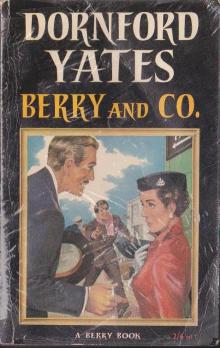 Berry and Co.
Berry and Co.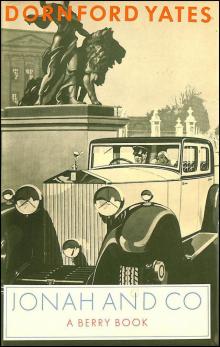 Jonah and Co.
Jonah and Co.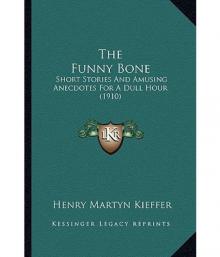 The Funny Bone: Short Stories and Amusing Anecdotes for a Dull Hour
The Funny Bone: Short Stories and Amusing Anecdotes for a Dull Hour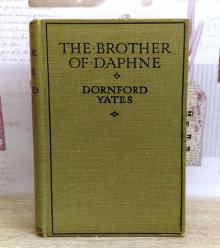 The Brother of Daphne
The Brother of Daphne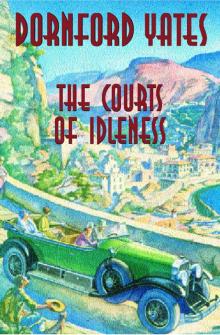 Courts of Idleness
Courts of Idleness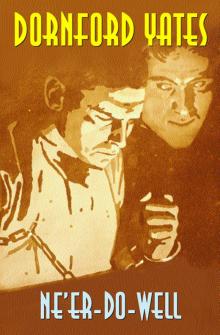 Ne'er Do Well
Ne'er Do Well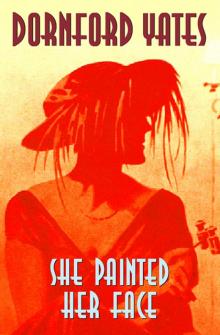 She Painted Her Face
She Painted Her Face Safe Custody and Laughing Bacchante
Safe Custody and Laughing Bacchante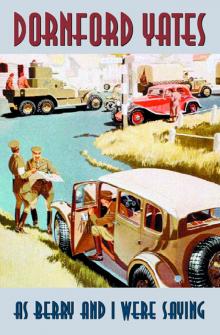 As Berry and I Were Saying
As Berry and I Were Saying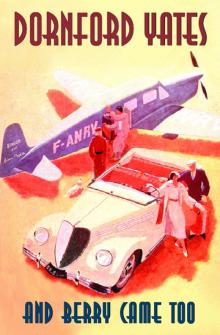 And Berry Came Too
And Berry Came Too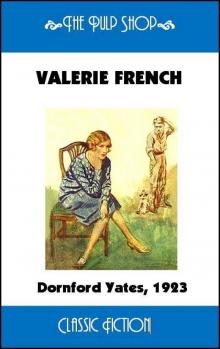 Valerie French (1923)
Valerie French (1923)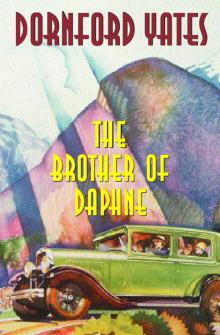 Brother of Daphne
Brother of Daphne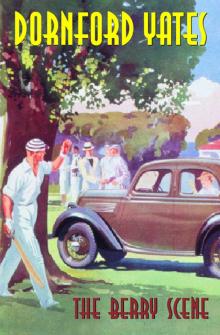 Berry Scene
Berry Scene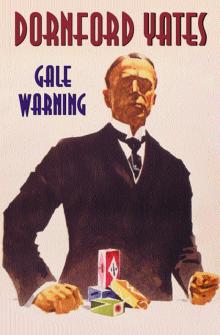 Gale Warning
Gale Warning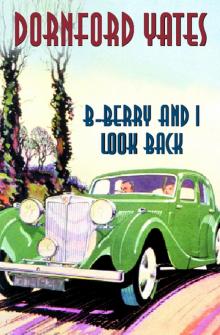 B-Berry and I Look Back
B-Berry and I Look Back Storm Music (1934)
Storm Music (1934)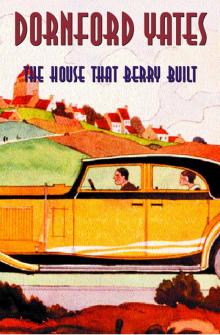 House That Berry Built
House That Berry Built